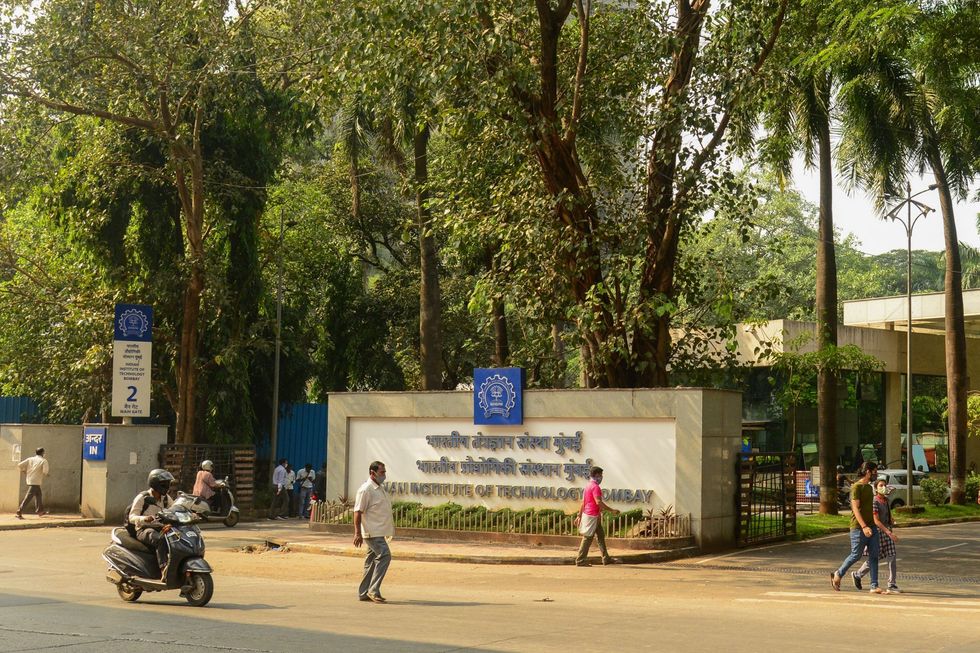LEADING Indian universities are in discussions to open campuses in Britain, it has emerged as a Conservative peer and former education minister called on the UK to “roll out the red carpet” for India’s top institutes.
The prestigious Indian Institute of Technology (IIT) should be allowed to can open their campus in the UK, Lord Johnson of Marylebone, the former universities minister, said in The Times newspaper.
The IITs are seen as India's top universities, and more than one million pupils apply each year for just 16,000 places.
Graduates from IIT run top tech companies including Sundar Pichai, the head of Google; Twitter's CEO Parag Agrawal; IBM's Arvind Krishna and Palo Alto Networks' Nikesh Arora.
In a recent speech, India’s high commissioner to the UK, Gaitri Kumar, is reported to have revealed there are talks to strengthen educational ties between India and Britain.

“Foreign institutes of repute are invited to establish branches of their institutions in India,” she was quoted as saying.
“We have in fact only last week shared the desire of our IITs to open campuses in the UK and it has been well received. I’m extremely enthused by the responses.
“This is something I’ll be working on immediately to get IITs and interested universities working together. India would like partners to consider her as more than just a market for education.”
Students from China dominate UK universities when compared to those from the EU.
The number of Indian students has been lower, but there has been a surge mostly due to visa changes.
Data released last week by the Higher Education Statistics Agency (Hesa) showed that the number of first year Chinese students fell by five per cent between 2019-20 and 2020-21 to 99,160 while the number of Indian students rose by 27 per cent to 53,015.
Johnson predicted Indian students at UK universities could overtake Chinese students within three years.
The latest official data show a further surge in Indian students in the UK, to nearly 84,000 in 2021-22.
“At this rate, they will overtake the Chinese student population within three years as the single largest group on campus,” Johnson said, writing in the paper.
“The Turing Scheme, the UK study abroad programme that replaced Erasmus+, has just
offered its first funded placements for the 2021-22 academic year. Disappointingly, only 3.5 per cent of participants chose India. Both Delhi and London should ensure that proportion increases. The UK government should make clear it is prepared to roll out the red carpet.”
“So many CEOs of top companies are from our IITs, the government of India set up a
committee to explore opening up in other countries. This could be as a standalone university or embedded in a leading university in the UK,” a spokesman for the High Commission of India in London was quoted as saying.
The official added that Cambridge, Exeter, King’s College London and Birmingham
universities had shown an interest.
“It’s a work in progress and responses have been very encouraging,” he said.
The IIT network was established in 1950 by the country's first prime minister Jawaharlal Nehru, who envisaged a pool of highly trained science and engineering graduates to help build India after the end of British rule in 1947.
But the supply of engineers was not matched by sufficient domestic demand, so graduates looked further afield, particularly in the United States where there was hunger for highly skilled workers as the digital revolution took off.
"In the '60s, '70s, and '80s, even into the '90s, Indian industry was not yet at the advanced (stages) and... a lot of those who wanted to do cutting-edge technology felt the need to go abroad," IIT Bombay deputy director S Sudarshan said.






 An aerial view of the British Steel Scunthorpe site on September 13, 2024. (Photo: Getty Images)
An aerial view of the British Steel Scunthorpe site on September 13, 2024. (Photo: Getty Images)










 Mehakdeep Singh,Sehajpal Singh
Mehakdeep Singh,Sehajpal Singh
 Bollywood megastar and timeless dancing queen returns to captivate British audiencesGetty Images
Bollywood megastar and timeless dancing queen returns to captivate British audiencesGetty Images 
 Glenn MaxwellGetty
Glenn MaxwellGetty Dinesh KarthikGetty
Dinesh KarthikGetty Rohit SharmaGetty
Rohit SharmaGetty Sunil NarineGetty
Sunil NarineGetty Piyush ChawlaGetty
Piyush ChawlaGetty Rashid KhanGetty
Rashid KhanGetty
 Maid - Alex scrubs her way to survival one heart-breaking shift at a time
Maid - Alex scrubs her way to survival one heart-breaking shift at a time  I Am Not Okay With This - High school rage and telekinetic chaos, Sydney didn’t come to play
I Am Not Okay With This - High school rage and telekinetic chaos, Sydney didn’t come to play Terra Nova - Time-traveling to the past never looked this dino-dramatic
Terra Nova - Time-traveling to the past never looked this dino-dramatic Firefly—too cool for space, too good for this world
Firefly—too cool for space, too good for this world Freaks and Geeks - Teen angst, flannel shirts, and the birth of comedy legends
Freaks and Geeks - Teen angst, flannel shirts, and the birth of comedy legends